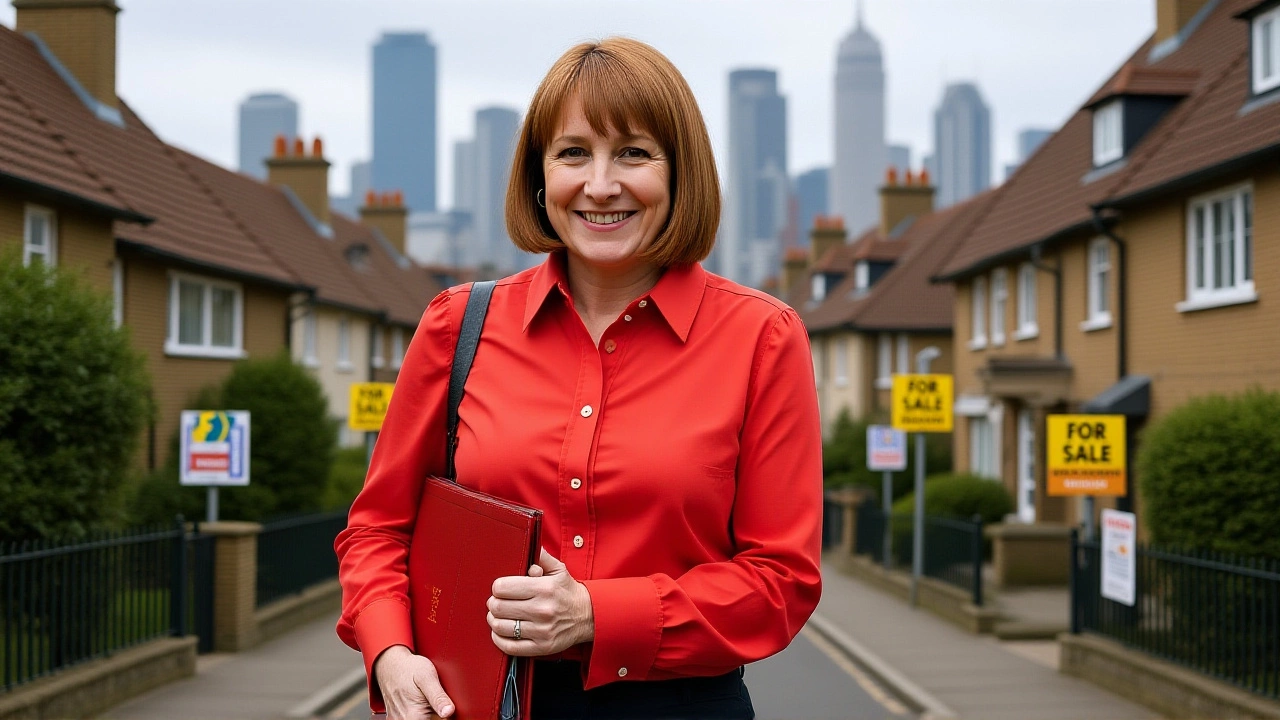When Rachel Reeves steps to the despatch box on Wednesday, November 26, 2025, to deliver the Autumn Budget 2025, she won’t just be balancing books—she’ll be rewriting the rules of wealth in Britain. The centerpiece? A new mansion tax targeting homes worth £2 million or more, a move that could ripple through neighborhoods from Kensington to Kent. It’s not just about raising money. It’s about sending a message: the era of untouchable wealth is over. And surprisingly, it’s not even the most radical part of her plan.
From £1.5M to £2M: The Pragmatic Pivot
Early drafts of the tax would have hit 300,000 households at a £1.5 million threshold. But Reeves, a former economic secretary with a reputation for precision, backed off. Why? Because she didn’t want to punish the "asset rich, cash poor." Think of the retired schoolteacher in Surrey who owns a £1.8 million home but lives on a pension. That’s the kind of person the Treasury feared alienating. So they drew the line higher—at £2 million. Now, only around 150,000 properties qualify. About 60,000 of those are in London, where property values have outpaced wages for decades. The change wasn’t just political—it was practical.
How It Works: Council Tax on Steroids
Here’s the twist: there’s no new tax form. No separate bill. Instead, the UK Treasury is piggybacking on the broken council tax system. Properties in Band G (£320,000–£400,000) and Band H (£400,000+) will see their rates doubled. A £2.5 million London townhouse currently paying £3,500 a year in council tax? That jumps to £7,000. But here’s the cap: no household pays more than £5,000 extra. That’s a concession to London’s absurd market, where even "average" luxury homes are priced like private islands.
The Office for Budget Responsibility (OBR), based in London, estimates the levy will raise between £400 million and £450 million annually. It’s not a windfall—it’s a bandage on a £20 billion hole in public finances. But the OBR also warned: this isn’t just about cash. It’s about behavior. Will owners sell? Rent out? Under-declare? The Treasury’s models say yes—but they also say the market won’t collapse.
Who’s Really Paying? The Hidden Ripple
On paper, this targets the ultra-rich. But ask a landlord in Barnes or a retired couple in Hampstead and you’ll hear a different story. "My council tax went up 15% last year," says Margaret Finch, 72, who’s lived in her £2.1 million home since 1995. "Now they’re doubling it? I’m not rich. I’m just lucky I bought early."
That’s the crux. The tax is designed for the top 0.3% of homeowners. But in a market where property values are the only asset many middle-class families have, the psychological and financial pressure is real. The Telegraph put it bluntly: "This levy, designed to catch 150,000 households, could be the start of a far bigger tax raid." And they’re not wrong. History shows tax thresholds creep down. The inheritance tax threshold, once £250,000 in 2000, now sits at £500,000—and still hits far more than intended.

More Than Just Homes: The Broader Tax Surge
The mansion tax is just one blade in a whole set of financial scalpels. Reeves is also pushing for:
- A profits tax on gambling firms, demanded by former Prime Minister James Gordon Brown
- A levy on bank profits
- A two-year freeze on income tax thresholds
- A pay-per-mile charge for electric cars
- A tourism tax for local councils, including London
And yes—there are concessions. Pensioners get an above-inflation boost. The two-child benefit cap is scrapped. The message? We’re taking from the wealthy to protect the vulnerable. But as one Treasury insider told The Times: "The OBR has factored in a behavioural response. It has a wider impact." Translation: we know this will ripple. We just hope it doesn’t break.
Why 2028? The 34-Year-Old Problem
Here’s the kicker: the tax won’t even start until 2028. Why? Because council tax bands haven’t been updated since 1991. That’s right. The system used to calculate your tax is based on property values from 34 years ago. A house worth £1.2 million today? It’s still in Band H because the government never revalued it. Fixing this would cost billions. So Reeves’s team chose the path of least resistance: keep the old bands, double the rates, and pretend it’s fair.
It’s a workaround. A clever one, maybe. But it’s also a lie. The system was broken before she took office. Now, she’s using that broken system to extract revenue from people who never expected to be taxed this way.

What Happens Next?
The UK Treasury says the housing market impact will be "minimal." But ask a real estate agent in Chelsea and they’ll tell you about the first wave of sellers already testing the waters. Some are listing now, hoping to cash out before the tax hits. Others are putting off renovations, afraid their home’s value will push them over the £2 million line.
Meanwhile, Labour’s critics are sharpening their knives. "This isn’t progressive taxation," says economist Dr. Eleanor Hart, formerly of the Institute for Fiscal Studies. "It’s a homes tax. And it’s the first step toward taxing every asset that doesn’t move. Next up? Car taxes. Art taxes. Trust funds. The door’s open."
Reeves knows this. That’s why she’s betting on timing. By 2028, inflation will have pushed more homes above the threshold. The tax base will grow naturally. And if the economy softens? That’s when the next round of adjustments comes.
Frequently Asked Questions
Who exactly will pay the mansion tax?
Only homeowners with properties valued at £2 million or more as of the 2028 revaluation. Roughly 150,000 properties qualify nationwide, with 60,000 in London. The tax is capped at £5,000 extra per year and applies via doubled council tax bands G and H. It won’t affect those with homes under £2 million—even if they’re wealthy in other assets.
Why is implementation delayed until 2028?
Council tax bands haven’t been updated since 1991 under the Local Government Finance Act 1992. Revaluing 2.4 million high-value properties would cost billions and require a full overhaul. The Treasury opted to double existing band rates instead—a cheaper, faster workaround, though one that distorts fairness.
How much revenue is expected, and how will it be used?
The Office for Budget Responsibility forecasts £400–450 million annually. This is part of a broader £20 billion fiscal consolidation plan to cover deficits in public services, particularly NHS funding and social care. The money will go into general revenue—not ring-fenced for housing.
Will this drive people out of London?
Some high-net-worth individuals may relocate to lower-tax regions or overseas, but the £5,000 cap reduces that incentive. Most Londoners affected are long-term owners who can’t easily sell. The bigger risk is a slowdown in luxury home sales, which could dampen construction and related services in high-value areas.
Could the threshold drop in future budgets?
Absolutely. Tax thresholds tend to creep down over time as inflation pushes more homes above the line. The £2 million threshold is politically safe now—but if revenues fall short or public pressure grows, future Chancellors could lower it to £1.8 million or even £1.5 million, expanding the tax base dramatically.
How does this compare to past wealth taxes in the UK?
The UK last had a comprehensive wealth tax in the 1970s, scrapped in 1988. Since then, attempts like the 2012 Mansion Tax proposal failed due to political backlash. Reeves’s version is narrower, less invasive, and cleverly embedded in an existing system. But its success hinges on public perception: is this fair redistribution—or a backdoor tax on aspiration?





